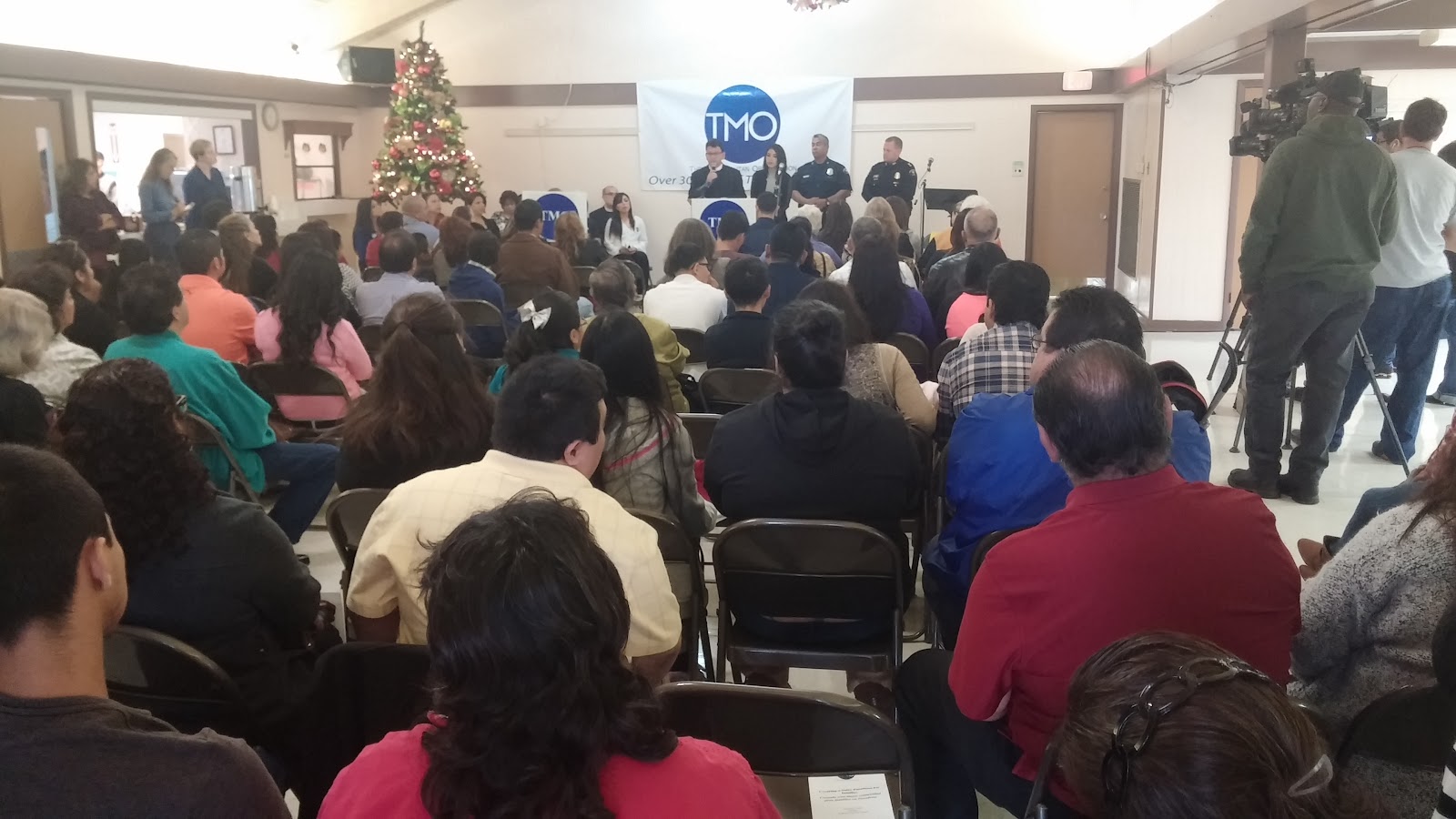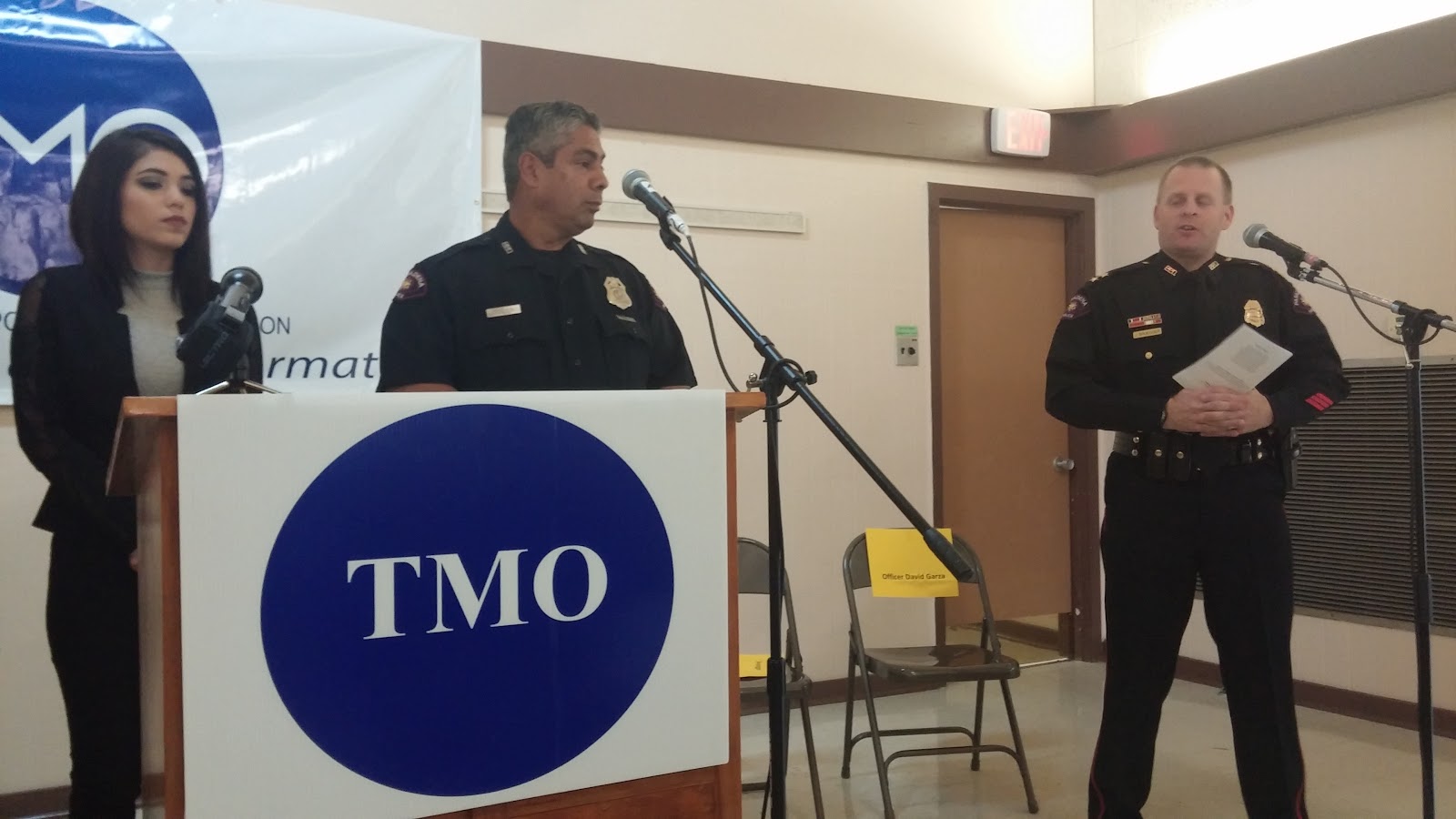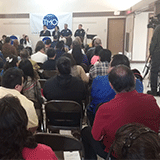
When the Rev. Pedro Lopez arrived at San Pedro/St. Peter’s Episcopal Church in Pasadena in 2011, it was a church in transition. Membership in the once thriving congregation was at about 50 people. The neighborhood had changed demographically from predominantly Anglo to Hispanic, and the church was not connected to its new neighbors.
Fr. Lopez set out to change that. By reaching out to the surrounding community, building relationships with neighbors, and identifying the needs and concerns families were facing, the congregation found ways to respond and engage with the community. Five years later, the congregation is once again thriving with 300 members on an average Sunday. A robust community center now offers services and classes such as computer skills, art, language and even fitness. The congregation has also revitalized their resale shop and uses its profits to support the food pantry and services for the homeless of Pasadena.
Fr. Lopez attributes the growth and change the congregation is experiencing to an investment in relationship building and community organizing as a congregation. Once a month, members of the congregation walk around the neighborhood and talk to people about the church and the community. The youth and young adults of the church are especially excited about this level of community engagement.
“This generation is very interested in coming to church, but they want to do more,” Fr. Lopez said “They want to be involved in issues in the community. They are very passionate about issues of justice and taking care of the environment.”
The growing desire of the congregation to build stronger relationships and gain a deeper knowledge of the needs and interests of families in their communities led San Pedro to partner with The Metropolitan Organization (TMO) to cultivate leadership and skills needed to connect with members of the community.
“TMO is very helpful in training some of the leaders,” said Lopez. “And we have good leaders, but they have been church leaders for years and have never been out in the community.”
Leaders from San Pedro and the community learned how to speak with individuals, organize meetings and identify a number of key issues facing families in the congregation. One of the top issues facing the community was crime, especially car break-ins and home burglaries.
After listening to neighbors, San Pedro hosted a Day of Action – an event where leaders and community members told their stories to Pasadena’s police chief.

The event initiated a partnership between the church and police department, which yielded heavier patrols in the area. It also strengthened the relationships between the police and neighbors who were afraid to report crime due to immigrant status.
Moreover, through speaking with individuals in the community, leaders also found that economic and job security were key issues in the surrounding community. San Pedro soon partnered with CapitalIDEA to connect people to higher education and long-term job training.
Fr. Lopez attributes San Pedro’s accomplishments throughout the community to the volunteers who always show up when they are needed. Those volunteers include youth, retirees and members of the community. Fr. Lopez believes the successes are a direct result of the deep connections that have been formed both within the congregation and outside in the community.
Given the success of building community connections, San Pedro hopes to develop initiatives that emphasize the importance of voting and voicing opinions about the issues that affect the community. The congregation has developed relationships with area Congressional representatives who often invite community members to discuss the issues that concern them most.
As neighborhood institutions, congregations have the capacity to build strong relationships with individuals, businesses and institutions to support the needs of those in the community. San Pedro is a good example of how a connected community can make a significant impact on pressing neighborhood needs. For congregations looking for ways to get out into the community, learning strategies to start conversations with community members and learning about their concerns is a good way to start.
Want to learn more about organizations that provide training for congregational leaders to build relationships and take action to build healthier communities? Contact EHF’s Congregational Engagement team.
